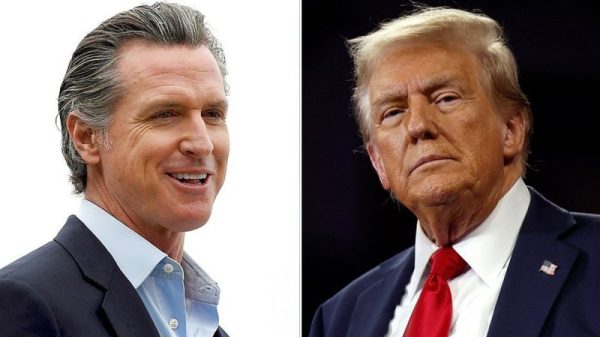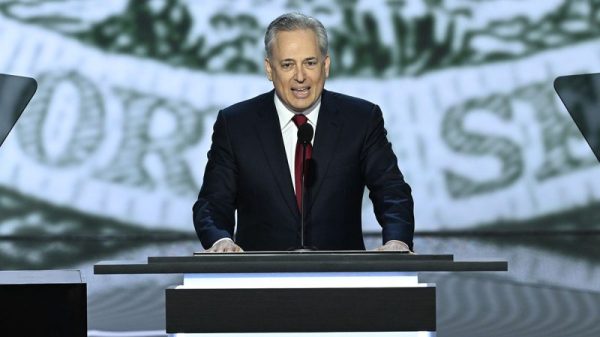BUENOS AIRES – Argentina, the majestic name conjures up images of sizzling steaks, velvety red wine, the sprawling wheat-laden Pampas and towering Aconcagua, the highest mountain in the Americas. The nation is riding high on the glory of Messi and last year’s victory in the World Cup, its first since 1986.
Yet, it is another Argentinian, one arguably more famous than even the great Lionel Messi, whose life and legacy could leave a resounding impact on a tense presidential election unfolding this weekend, more than seven decades after her death.
The Peronist economic legacy
Evita Peron, ‘the voice of Argentina,’ and her husband, Juan Domingo Peron, ruled the country with an iron fist, summoning legions of poor and working-class Argentinians to take the country by storm on command. The ‘descamisados,’ translated to ‘shirtless ones,’ were Spanish and Italian immigrants who arrived by the millions to the land of opportunity at the beginning of the 20th century.
To their supporters, the Perons were heroes who raised the standard of living for Argentinian workers and nationalized the economy to the benefit of the masses and to the detriment of British and American investors. To their detractors, they were dictatorial demagogues who jailed political opponents, cracked down on freedom of speech and the press, and lived to attack the middle class and the dreaded ‘oligarchy’ they held responsible for all the nation’s ills.
What is certain is that many of Argentina’s serious and persistent economic problems stem from the decisions made, and the ideology promoted under the Peron administration: chiefly massive spending initiatives, wage and price controls, and nationalizations and expropriations, leading to massive distortions in the economy, and runaway inflation.
Sergio Massa and Javier Milei offer stark ideological contrast
Today, establishment candidate Sergio Massa and iconoclastic libertarian economist Javier Milei are about as diametrically opposed on politics and policy as could be imagined.
Massa, the current economy minister, is a smooth and affable chameleon-like figure with a three-decades-long career in politics. Originally part of a line of dissident Peronistas, he ran for president as an independent Peronist candidate in 2015, placing third with 19.5% of the vote.
Cristina Kirchner: Today’s Peronist incarnation, and Massa’s champion
Today, he counts on the critical backing of Cristina Kirchner, the Peronist Party and its massive political machinery. Walking the streets of downtown Buenos Aires, the bloated bureaucratic state of Argentina is on full display, working overtime to push Massa over the finish line. Every metro station, every building, every billboard, it seems, heralds Massa, proclaiming his slogan, ‘the Argentina that we’ve been waiting for is coming.’
Such a slogan might beg the question, ‘why isn’t it already here?’ Furthermore, how does the current minister of economy currently count on the support of half of the nation in the polls with 40% of Argentinians living in poverty and inflation exceeding 140%?
Milei’s Pledge: Strangle the bureaucratic state, shut the central bank, and dollarize the economy
Enter libertarian economist Javier Milei, a current congressman who represents the greatest threat in a generation to the nation’s political establishment. With a chainsaw in hand, Milei has pledged a relentless campaign against the ‘useless’ and ‘parasitic’ bureaucratic class, which he alleges is choking the life out of the Argentine economy and causing a repetitive inflation death spiral.
The foundation of his campaign rests on two promises: he will close the Argentine Central Bank, and he will dollarize the economy.
Often incorrectly described as ‘extreme right’ or ‘populist,’ Milei is, in fact, a devout libertarian who is particularly inclined to the Austrian school of economics.
Massa: Establishment candidate with standard ‘red meat’ populist proposals
Massa, seeking to play the role of sensible moderate and seasoned hand, offers a more conventional ‘meat and potatoes’ approach to governance, under the banner ‘Medidas para mejorar tu Vida’ or ‘Measures to improve your life.’ He pledges to cut a variety of taxes while also providing sizable payments and subsidies to Argentinian workers.
It sounds great, and it may poll well, but it may not be feasible. Argentina’s fiscal house is on life support, and it remains unable to access foreign credit markets. Additionally, its foreign reserves are rapidly depleting.
Massa defeated Milei in the first round, winning 9.9 million votes, or 36.8%, to Milei’s 8 million votes, or 30%.
The race is currently locked in a statistical tie, with most recent polls giving a slight edge to Milei. The average of the last five major polls shows Milei with 47.5% over Massa with 45.2%. However, polls in the first round generally overestimated Milei’s support, while underestimating Massa’s.
If Milei pulls off a win, he will owe a debt to the quick endorsements of Patricia Bullrich and former president Mauricio Macri, who quickly coalesced around Milei following Bullrich’s third place performance in the first round.
Milei’s fate now rests in the hands of the 23.8% of Argentinians who voted for former Bullrich in the first round, and to a lesser extent, the 6.7% of Argentinians who voted for centrist Juan Schiaretti, the governor of Cordoba. Recent polls have shown that roughly 70-75% of Bullrich voters plan to back Massa in the second round, while Schiaretti voters are split right down the middle.
Final electoral math
Combining Milei’s 30% in the first round, with roughly 18% (from three-quarters of Bullrich voters), and an additional 3.4% from Schiaretti, would put Milei at just over 51%.
Sergio Massa, on the other hand, needs to count on record-setting turnout in Peronist strongholds in Buenos Aires city and province (which together constitute 45% of the Argentine electorate), and make an outside appeal to the small but appreciable segment of Bullrich voters who are alienated by Milei’s temperament, and may be persuaded to grudgingly back Massa as a protest vote, or merely stay home.
It will likely be the closest, and arguably the most consequential, election in a generation.
For Sunday’s Nov. 19 election, polls will open at 8 a.m. local time and close at 6 p.m. local time (6 a.m. and 4 p.m. EST).


































